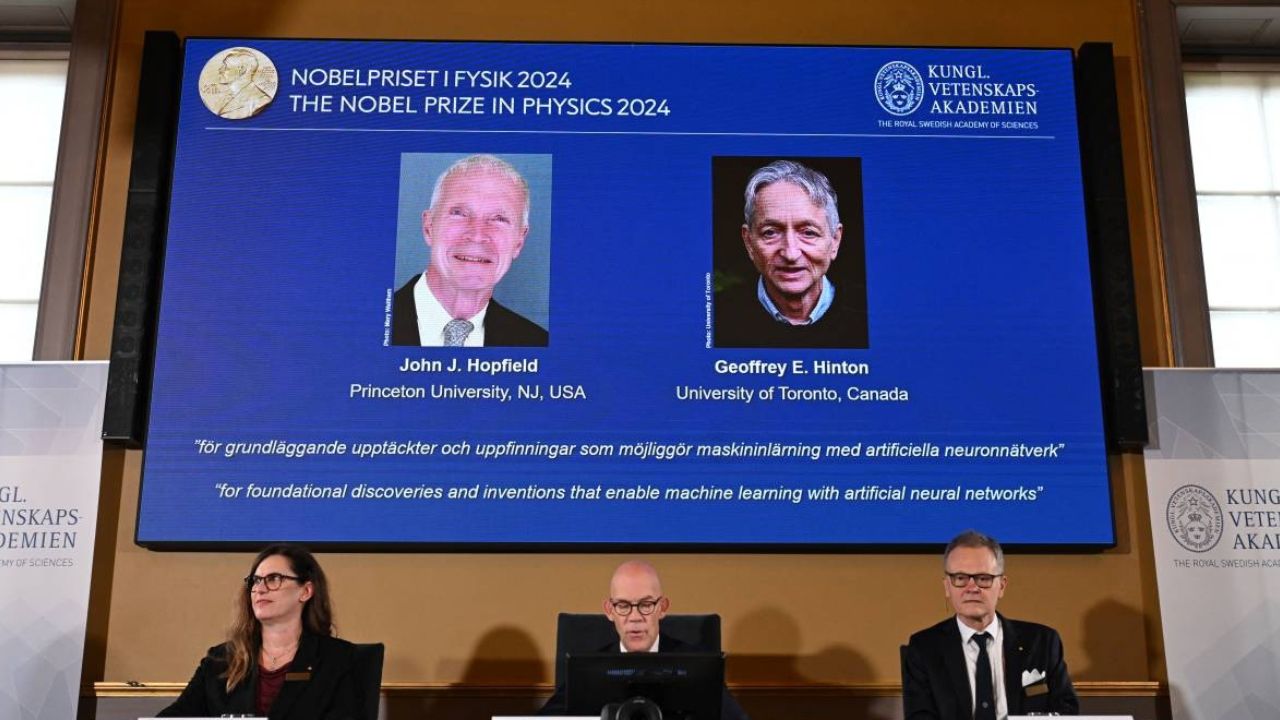American John Hopfield and British-Canadian Geoffrey Hinton won the Nobel Prize in Physics on Tuesday for pioneering work in the development of artificial intelligence.
The pair were honored “for foundational discoveries and inventions that enable machine learning with artificial neural networks,” the jury said.
“This year’s two Nobel Laureates in Physics have used tools from physics to develop methods that are the foundation of today’s powerful machine learning,” the Swedish Royal Academy of Sciences said in a statement.
Hopfield, 91, a professor at Princeton University, was spotlighted for having created “an associative memory that can store and reconstruct images and other types of patterns in data.”
The jury said Hinton, a 76-year-old professor at the University of Toronto, “invented a method that can autonomously find properties in data, and so perform tasks such as identifying specific elements in pictures.”
“I’m flabbergasted… I had no idea that could happen,” Hinton told reporters via a phone interview as the winners of the award were announced in Stockholm.
The pair will receive their prize, consisting of a diploma, a gold medal and a $1 million cheque, from King Carl XVI Gustaf in Stockholm on December 10, the anniversary of the 1896 death of scientist Alfred Nobel who created the prizes in his last will and testament.
Last year, the Nobel Prize in Physics went to France’s Pierre Agostini, Hungarian-Austrian Ferenc Krausz and Franco-Swede Anne L’Huillier for research using ultra quick light flashes that enable the study of electrons inside atoms and molecules.
The Nobel season continues this week with the announcement of the winner, or winners, of the chemistry prize on Wednesday — followed by the much-anticipated prizes for literature on Thursday and peace on Friday.
The Economics Prize winds things up on Monday, October 14.
Awarded since 1901, the Nobel Prizes honor those who have, in the words of prize creator and scientist Alfred Nobel, “conferred the greatest benefit on humankind.”







